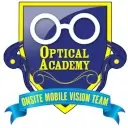Ophthalmology is a specialized field of medicine dedicated to the diagnosis and treatment of eye-related conditions. The professional at the helm of this healthcare sector is an ophthalmologist. This article delves into the core aspects of an ophthalmologist’s role, comparing it with other eye care professions, and explaining when you might need to consult one.

Table of Contents
Ophthalmologist, Optometrist, Optician: What’s the Difference?
While ophthalmologists, optometrists, and opticians all contribute to eye care, their roles and responsibilities vary significantly.
Ophthalmologist
In the trio of eye health professionals, an ophthalmologist stands at the peak of the hierarchy in terms of qualifications and scope of services. They are medical practitioners specializing in total eye care, including vision services, eye examinations, and medical and surgical eye care. They are equipped to diagnose and treat diseases and visual complications arising from other conditions, like diabetes.
Optometrist
Optometrists, on the other hand, are healthcare professionals providing primary vision care. They perform eye examinations, diagnose certain eye abnormalities, and prescribe corrective lenses. However, they are not qualified to perform surgical treatments, a competence reserved for ophthalmologists.
Optician
The role of an optician is more technical. They are responsible for fitting eyeglasses and contact lenses based on the prescriptions provided by an ophthalmologist or optometrist. Opticians cannot conduct eye examinations, diagnose eye conditions, or prescribe treatment.
Training and Education of an Ophthalmologist
The journey to becoming an ophthalmologist involves extensive training and education.
- Undergraduate Education: An aspiring ophthalmologist must first complete a four-year pre-medical undergraduate course, usually majoring in subjects like biology or chemistry.
- Medical School: Following the undergraduate degree, they must enroll in medical school for another four years, where they are awarded either a Doctor of Medicine (MD) or Doctor of Osteopathy (DO) degree.
- Internship: After medical school, a one-year internship provides candidates with practical experience in a clinical setting.
- Residency: A three-year (or more) specialized medical and surgical training in eye care follows. It is during this period that they acquire comprehensive knowledge and skills to diagnose, treat, and manage conditions affecting the eye and visual system.
- Fellowship: After completing the residency, some ophthalmologists choose to specialize further in certain areas of eye care like pediatrics, cataracts, or glaucoma. This involves a one to two-year fellowship program.
When to Consult an Ophthalmologist?
While an ophthalmologist can cater to all your eye care needs, there are certain situations where their expertise becomes particularly crucial.
Surgical Needs
Eye problems that necessitate surgical intervention are best handled by an ophthalmologist. These include conditions like:
- Cataracts: A clouding of the eye’s natural lens leading to blurred vision.
- Glaucoma: A condition characterized by optic nerve damage due to fluid buildup in the eye.
- Retinal Detachment: A severe eye condition where the retina pulls away from its supporting tissues.
Specialized Treatment
Certain eye conditions require specialized treatment, which can be provided by an ophthalmologist. These include:
- Age-Related Macular Degeneration (AMD): A common age-related eye problem obstructing the central field of vision.
- Amblyopia (Lazy Eye): A condition where one eye becomes weaker than the other during infancy or childhood.
- Astigmatism: An eye condition causing blurred vision, sometimes treated with laser surgery.
- Diabetes-Related Retinopathy: A condition weakening the blood vessels in the retina due to diabetes.
Regular Eye Examinations
Routine eye examinations are an essential part of maintaining overall eye health. The frequency of these exams varies with age and the presence of any eye-related issues.
- Children: Vision screening should begin around the time when children learn the alphabet, with subsequent screenings every one to two years.
- Adults (20-39 years): Complete eye exams should be conducted every five to ten years.
- Adults (40-54 years): Eye examinations should be done every two to four years.
- Adults (55-64 years): Eye check-ups should be more frequent, ideally every one to three years.
As you age and your vision changes, your eye health becomes increasingly crucial. Regular check-ups can help in early detection and treatment of potential eye problems.
What to Expect During an Ophthalmologist Appointment?
An appointment with an ophthalmologist typically begins with a series of questions related to your eye health, followed by a comprehensive eye examination involving several tests:
- Visual Acuity Test: Read from a Snellen chart featuring lines of random letters that decrease in size.
- Color Blindness Test: Identify numbers formed by colored dots on several charts.
- Stereopsis Test: Checks for 3-D vision accuracy.
- Peripheral Vision Tests: Identify points of light while looking into a machine.
- Eye Muscle Test: Follow a penlight or pencil with your eyes moving in different directions.
- Pupil Constriction Test: Checks pupil response to light exposure.
- Fundus Check: Examines the back of your eye, including the retina, nearby blood vessels, and the optic nerve.
- Glaucoma Test: Measures pressure in the eye to check for glaucoma.
Eye Problems: When to Call an Ophthalmologist?
You should reach out to an ophthalmologist promptly if you experience any of the following:
- Eye injury or infection
- Eye pain
- An increase in floaters and flashes of light
- Changes in vision, such as blurriness or double vision
- Sudden vision loss, even if it returns shortly
In conclusion, an ophthalmologist plays a crucial role in maintaining your eye health. They provide comprehensive eye care services, including diagnosis, treatment, and management of various eye conditions. Regular consultations with an ophthalmologist can help detect and treat potential eye problems early, ensuring the longevity of your vision.


Worksite
All Employees Served With Direct Vision Care All In One Day At Their Worksite!.
Glasses2Classes
Vision screenings, eye exams, and eyewear for all students at their schools!
Community Events
Provide Easy Access To Eye Care & Eyewear for Your Entire Community!
At Home
Skip the trip! We travel directly to all fragile homebound patients!